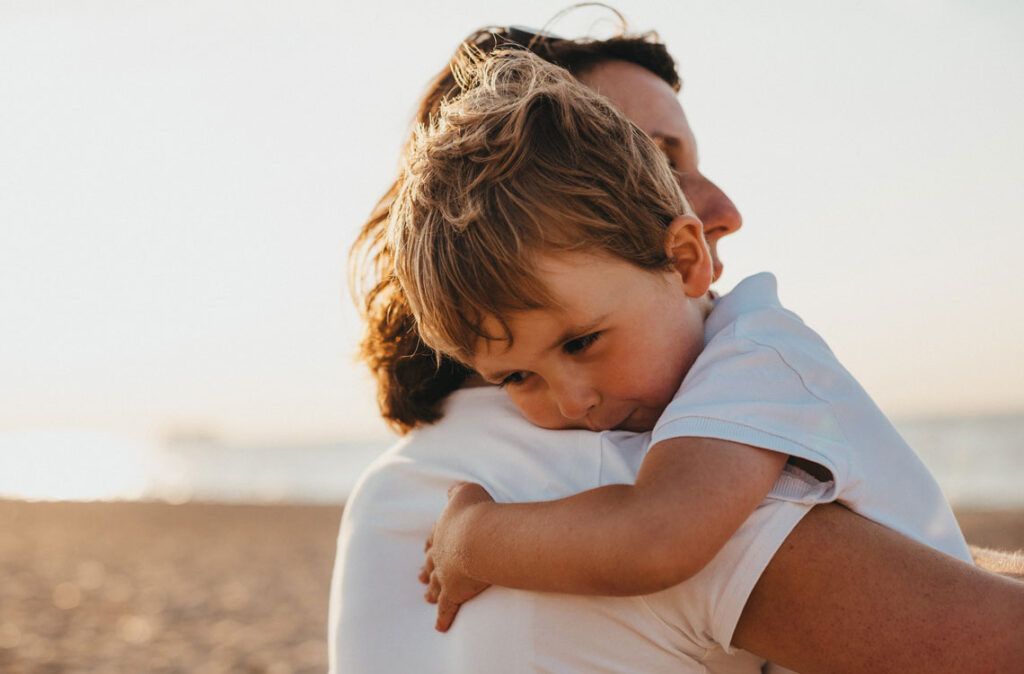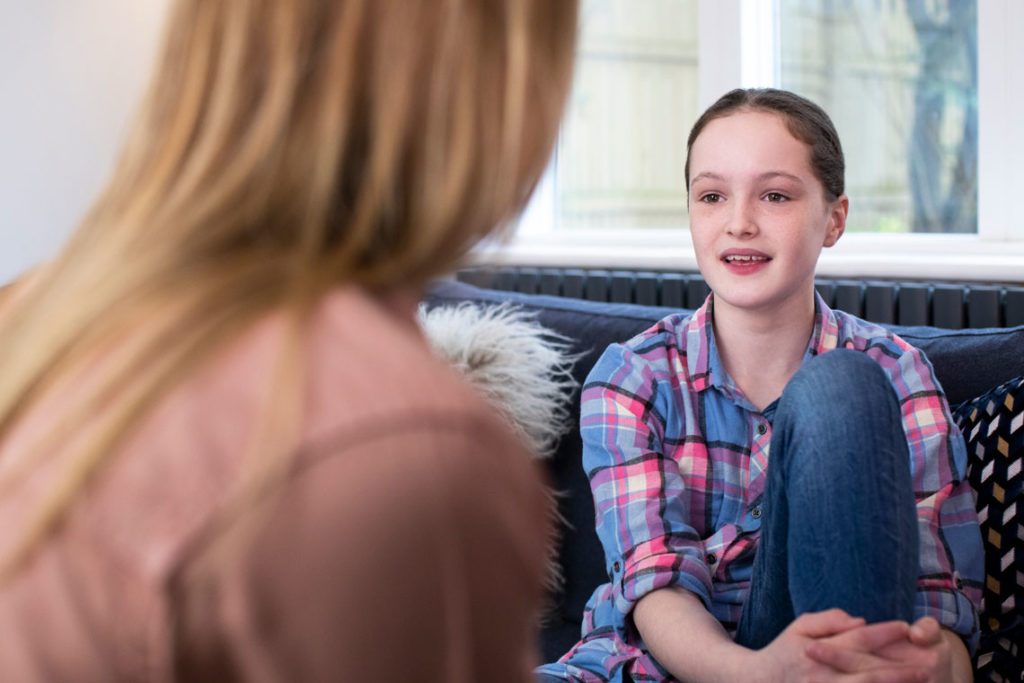
For any parent, just the thought of telling your child that you're separating is devastating, let alone actually having to do it.
However, as soon as you have both made the decision to go ahead with the separation or your living arrangements start to change, it’s important to tell your child as soon as possible.
Children are very observant and as much as you might think they do not notice that things are different, they do. They will need your support to understand what this change is so they are not left feeling worried, anxious or scared.
How you break the news will differ depending on the age of the child.
Children aged 2-4 years old
- Sit with them as you play and create two houses or two tents to play in. Introduce the concept of Mammy in one house and Daddy in the other house and then play a game of the child coming to spend time in each house.
Help them to build the tent, what it looks like, what they would have in each tent to make it nice and safe, and a place they would like to be.
What would Mammy need in her tent and Daddy need in his tent? When the tents are built, talk with your child about what it would be like if there really were two tents, like two houses, and that one parent was going to live in a new house, just like the tent and it would be safe and secure and the child would be part of that new house/tent.
Hear what your child has to say. Gently explore what they come up with. - Children will have many practical concerns at this age about living in two homes around toys, belongings etc. Remember children at this age are still very egocentric and life is all about them and their needs. Talk with them about their biggest concerns and how you could solve them.
- Allow the conversation to continue by using story books and art work. Draw images of family and home as you know it now and then introduce two homes and what that would look like.
- Tell your child clearly that Mummy and Daddy are going to live in two separate houses and build on this depending on how much capacity your child has to understand. Start with the truth and go from there.
Helping your child have the space to explore the practical change that separation would bring is key at this age. Playing this game will help you to understand what their needs are, what they are worried about and what you as their parent need to do in order to support them through this major family life change.

Children aged 5-9 years old
- At this age group, it is best for both parents to sit the children down together and tell them. For example: ‘Mammy and Daddy no longer want to live in the same house. You may have noticed we fight more than we should and we don’t think this is the best way for our family to be. We have decided that we are going to have two homes and live separately where you will live with us.’
- Be very clear and direct with this age group – do not tell them false truths and do not blame one parent for the separation. Do not ask them to take sides, as in the long run you will create emotional turmoil for them. What is necessary is that you move forward allowing each other to take an active role in parenting your child.
- Allow your child to ask you questions. They may be shocked and, even if they suspected the separation, will still be saddened to hear you say the change is going to actually happen.
- Talk with your child about how two homes will work. Do not allow them to witness a situation where one parent packs and says goodbye. This is heartbreaking for children and the sense of abandonment and hurt can be felt for many years.
- Allow them be involved in making the changes as this will help them to understand it more clearly. By understanding what is happening they will develop the language to talk about it with you and with others.
- Support children to know the separation is not a secret. They can tell their close friends if they wish to and talk to relatives about it. As parents, it is really important to tell the school. Schools will notice a change in your child and they need to understand the background. This will also allow the school to be more sensitive to the issue in class work and activities.
- Create plenty of opportunity for your child to talk about what is happening. Listen and tell your children you are happy for them to talk about anything. Make sure you are on the same page as the other parent.
- On the day you share this news with your child, try to ensure both parents can be around for them for the remainder of the day. Do something nurturing with them, reading a story, bath time, art work. Allow them time to go away and play and to find you again for more questions or a cuddle. Children will need a lot of reassurance that both parents still love them and will be there for them.

Children aged 10-14 years
- Sit down with your children and tell them very clearly that you have decided to separate and will no longer continue to live in the same home. Children may walk away when you tell them this so it is important for parents to be available to them for the remainder of the day.
- Allow your children to ask questions, many will be about their own needs and just hear this. Children will worry about change and who will notice the change. They will usually be well connected into the greater community at this age so will worry about getting to activities and the costs involved. They will worry about where everyone will live and how big the changes are going to be.
- At this stage it is important as two parents to reassure your children you are going to work with each other to find the best solutions to all of these worries. Try not to make promises at this time until you have both talked and agreed what the plan will be.
- Children of this age will want to have a clear voice in what happens after separation and it is vitally important to listen to them. The relationship they have with you as their parent is very separate to the one you have with their other parent.
- Plan with your children how the two homes will be created and how and when one parent will leave. Children will remember this event for life so try to ensure you are not adding to the grief they will feel by the way you carry this out. As much as you may resent the other parent, it is now about the business of shared parenting and putting the children first.

General advice regardless of the child’s age
- Always be honest with children in an age appropriate way. Build on the truth.
- Children are only interested in your relationship with them and how the separation will impact that.
- Do not tell children one parent is to blame for the separation. Children cannot be caught in the middle of your relationship issues.
- If conflict formed a serious part of life leading up to the separation you need to seek professional support around how to learn to communicate more effectively with each other. Children do not suffer negatively because of family separation but they do with prolonged chronic parental conflict.
- Ensure there is no gap in your child seeing the other parent who leaves the family home. Children need constant reassurance at this stage that both parents are there for them and they need to see each parent to know they are okay.
- Look after yourself as you will need a vast amount of energy moving forward to build a positive parenting relationship with the other parent that will support your children.
- Be open to creating a shared parenting plan that works for your children. Try not to listen to what others have done or what you think the norm is. Every family is unique and therefore the shared parenting plan should be unique to your family, ensuring your child’s needs are met within it. All plans will need to be adjusted over time as children grow and life changes.
This article was adapted from one written by Director of Parenting Services Geraldine Kelly of One Family. For further resources and information on this topic, go to OneFamily.ie
